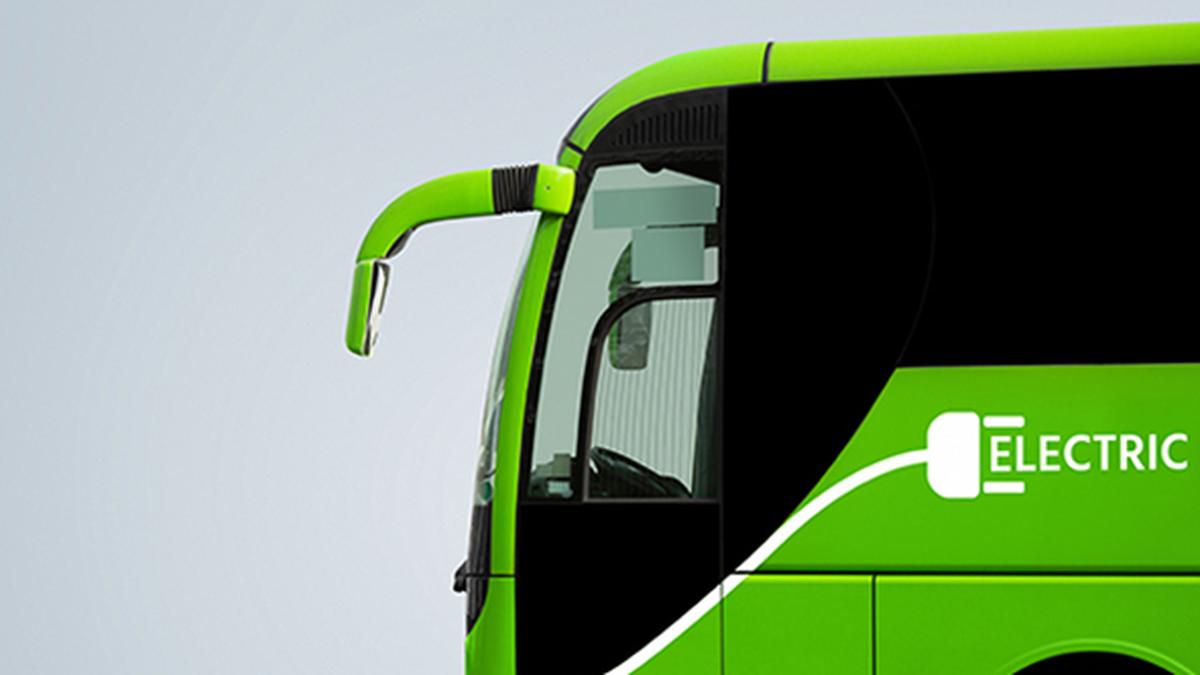Representational image
| Photo Credit: Getty Images
In a major push towards strengthening the public transport sector’s shift to electric vehicles, the government-owned Puducherry Road Transport Corporation (PRTC) has set an ambitious goal to achieve 100% electrification of its entire fleet by the year-end.
Official sources said the Convergence Energy Services Limited (CESL), on behalf of Ministry of Housing and Urban Affairs (MoHUA), had aggregated the demand from cities shortlisted under the PM e-bus scheme.
With the U.T. waiting for the delivery of its first tranche of electric buses being procured under the Smart City scheme, the Transport Department had submitted a demand for 75 electric buses to the Ministry of Housing and Urban Affairs (MoHUA).
A Detailed Project Report has been submitted to the Union Government. The initiative is aimed at promoting clean and sustainable public transportation through a Public-Private Partnership (PPP) model in urban centres across India.
“CESL has shortlisted the operator for the PM e-bus Seva scheme. We have projected a demand of 75 buses. Of this, 50 will be 12-metres long and the rest (9-metres long) buses. The project includes three components – Central Assistance for operation of e-buses in per km basis, for depot infrastructure and Behind the Meter Infrastructure. The Transport Department will be examining the rates, service experience of the operator and various qualitative issues following which the proposal will be forwarded to the Puducherry Government for approval. Subsequently, the Letter of Agreement (LoA) will be issued to the operator,” Transport Commissioner A.S. Sivakumar told The Hindu
Mr. Sivakumar added, “The electric buses will be operated only in urban and intra-state routes and not on the inter-state route. The government’s vision is to replace its entire fleet of diesel buses with electric buses by December in Puducherry region. The transition will be subsequently extended to the outlying regions also.”
Currently, PRTC has a fleet of 139 buses available and deployed on inter-state and intra-state routes.
“In line with its commitment to switch over to green mobility, the Transport Department has already placed order for 25 electric buses under ₹23 crore seed money sanctioned under the Smart Cities scheme. The prototype is expected by this month end and the buses will be added to the fleet in the coming months. This shift is expected to reduce carbon emissions and improve the city’s air quality,” an official said.
States or cities will be responsible for running the bus services and making payments to the bus operators. The Central government will support these bus operations by providing subsidies to the extent specified in the scheme.
Under the scheme, the government will provide ₹24 and ₹22 per km per bus deployed on intra-city routes and urban areas respectively to the administration and the remaining amount will be borne by the U.T., the official added.
“For cities in the first segment, depot infrastructure will also be developed to support the new e-buses, including the creation of behind-the-meter power infrastructure like substations. For those in the second segment, initiatives will focus on bus priority, infrastructure, multimodal interchange facilities, automated fare collection systems, and charging infrastructure,” Mr. Sivakumar said.
A Payment Security Mechanism (PSM) will also be put in place by the Centre to protect e-bus operators and help in adoption of electric vehicles. PSM will ensure that e-bus operators are paid on time for their services and also penalty for their vehicles in the event of improper upkeep of vehicles, inefficiencies in operation and poor health of State Transport Utilities like Depot infrastructure.
Published – February 10, 2025 04:18 pm IST
